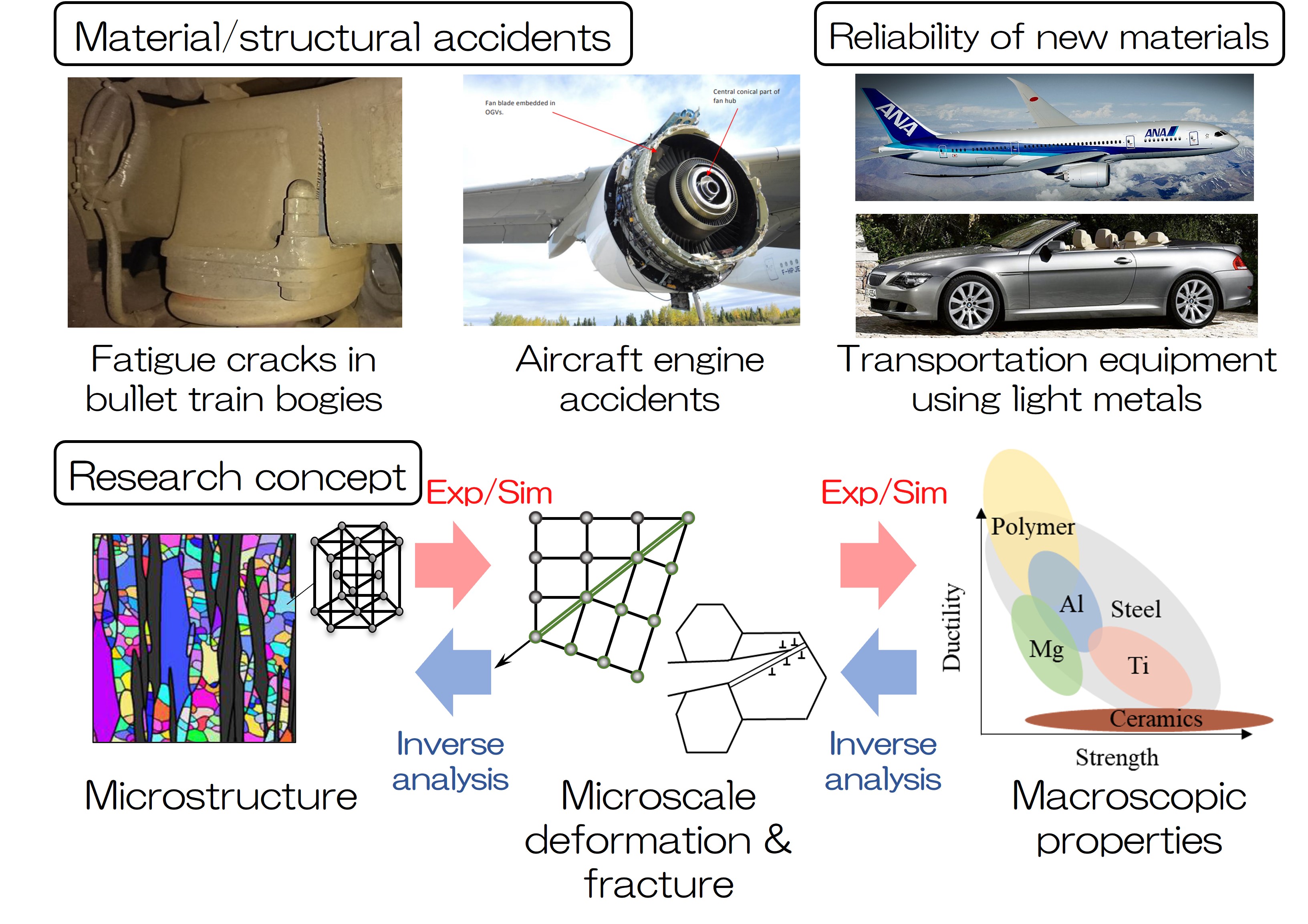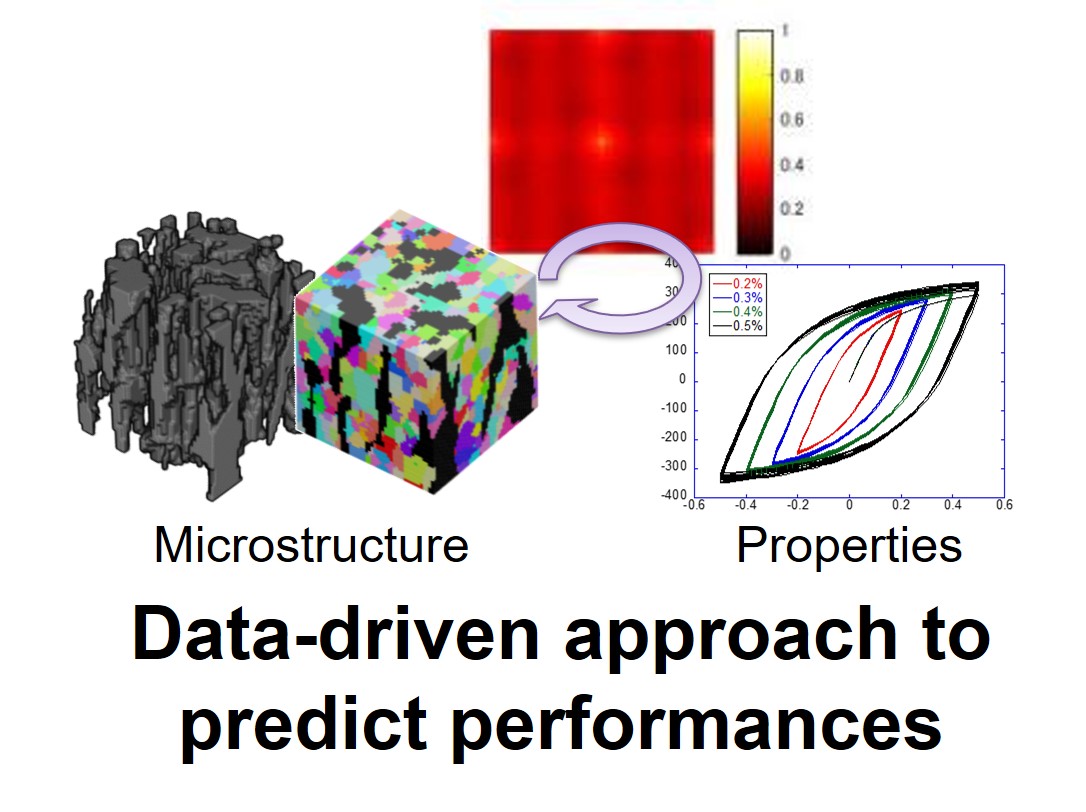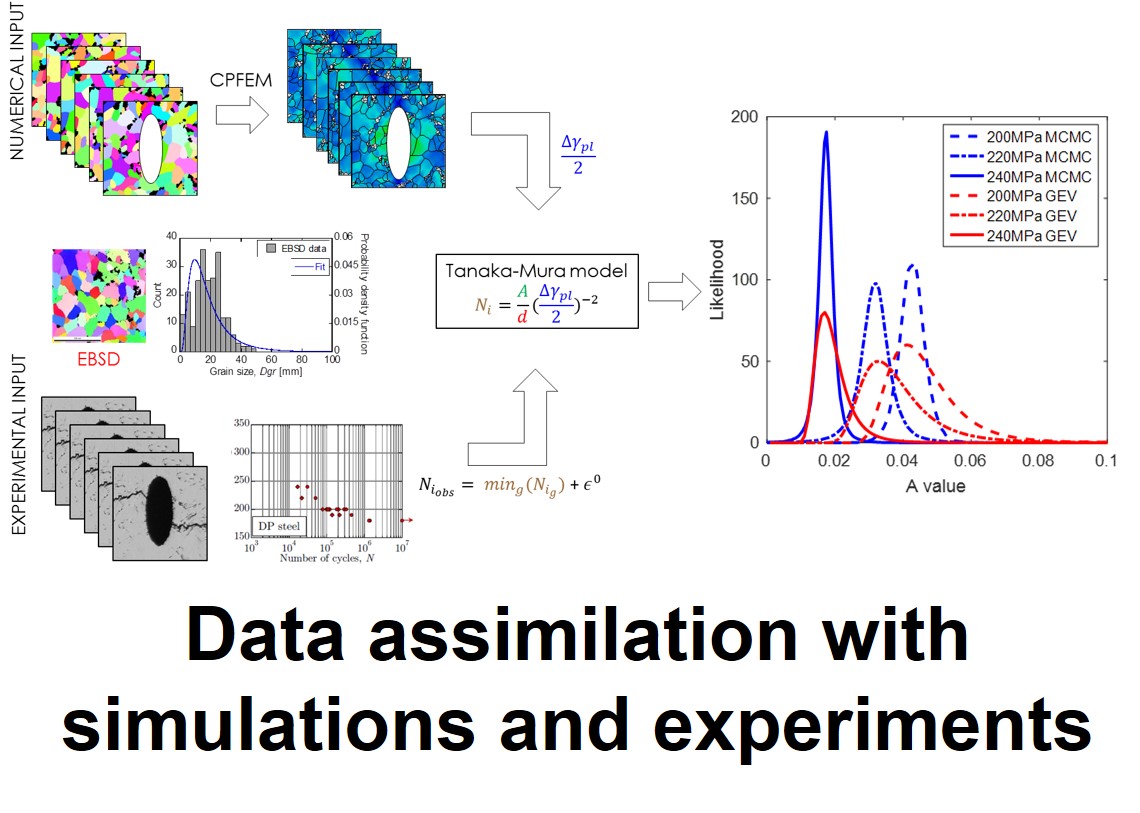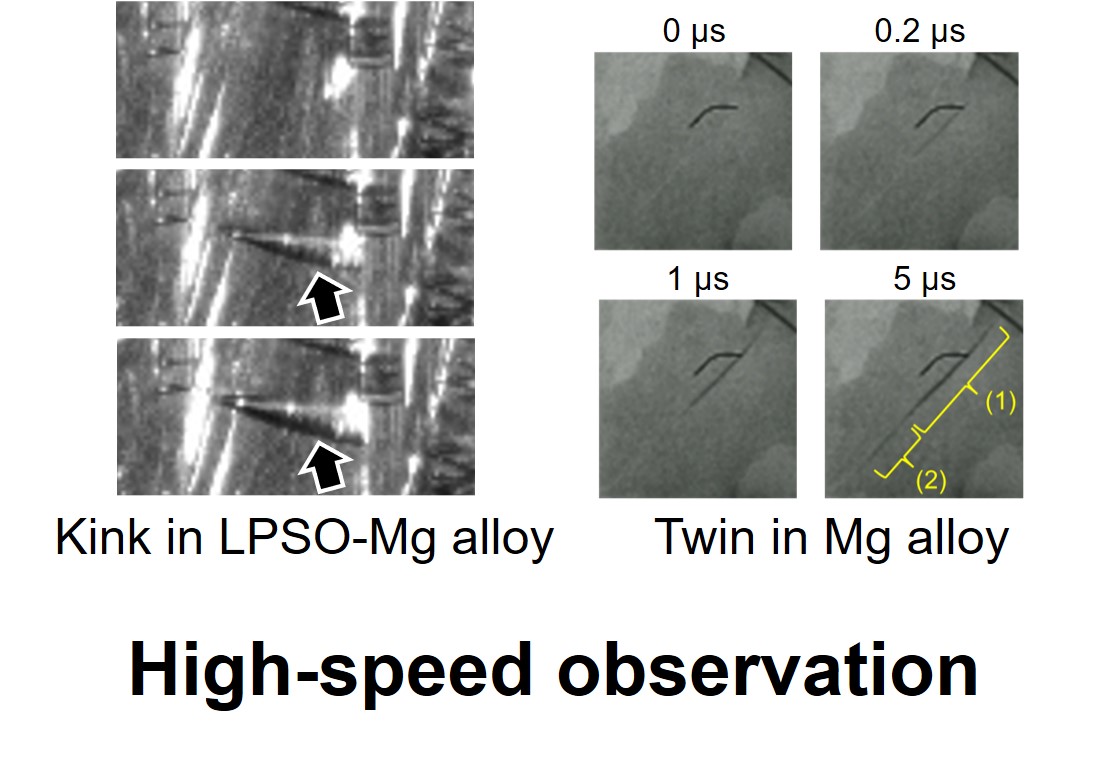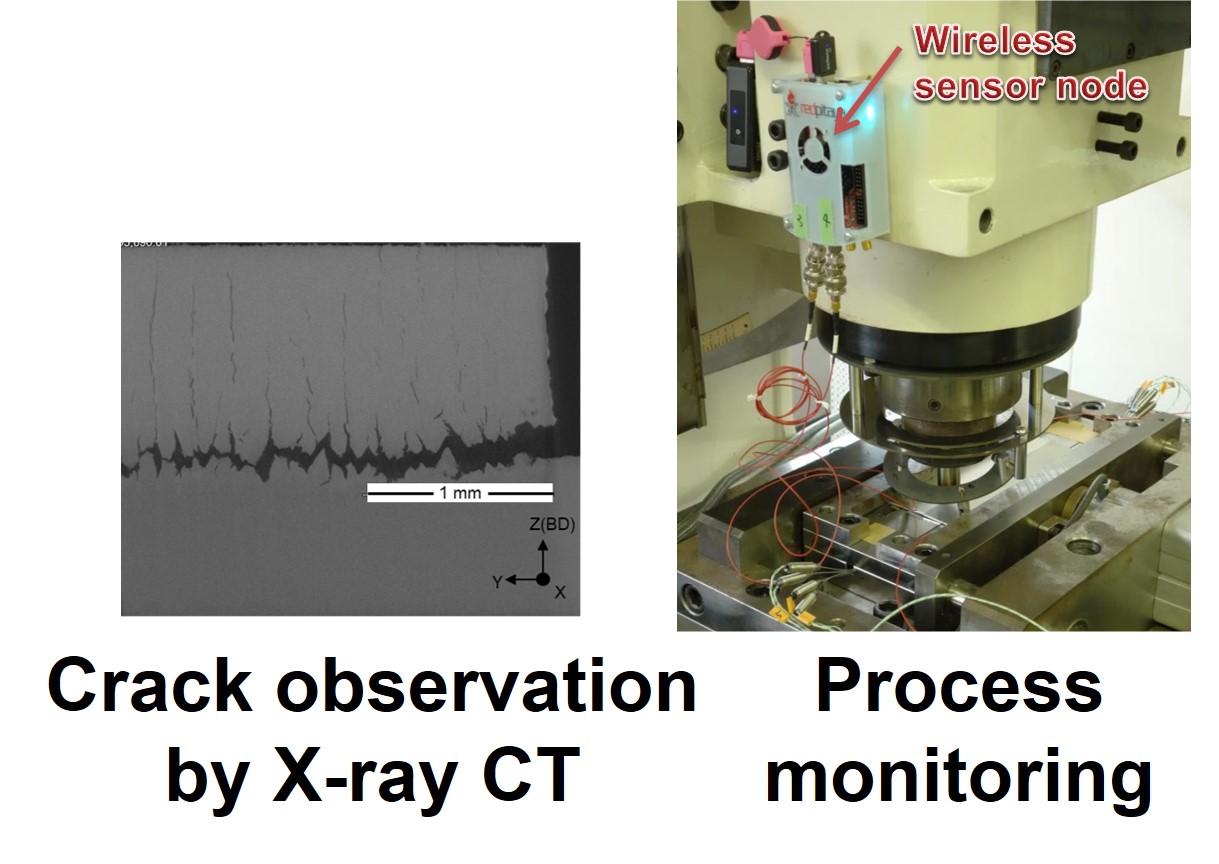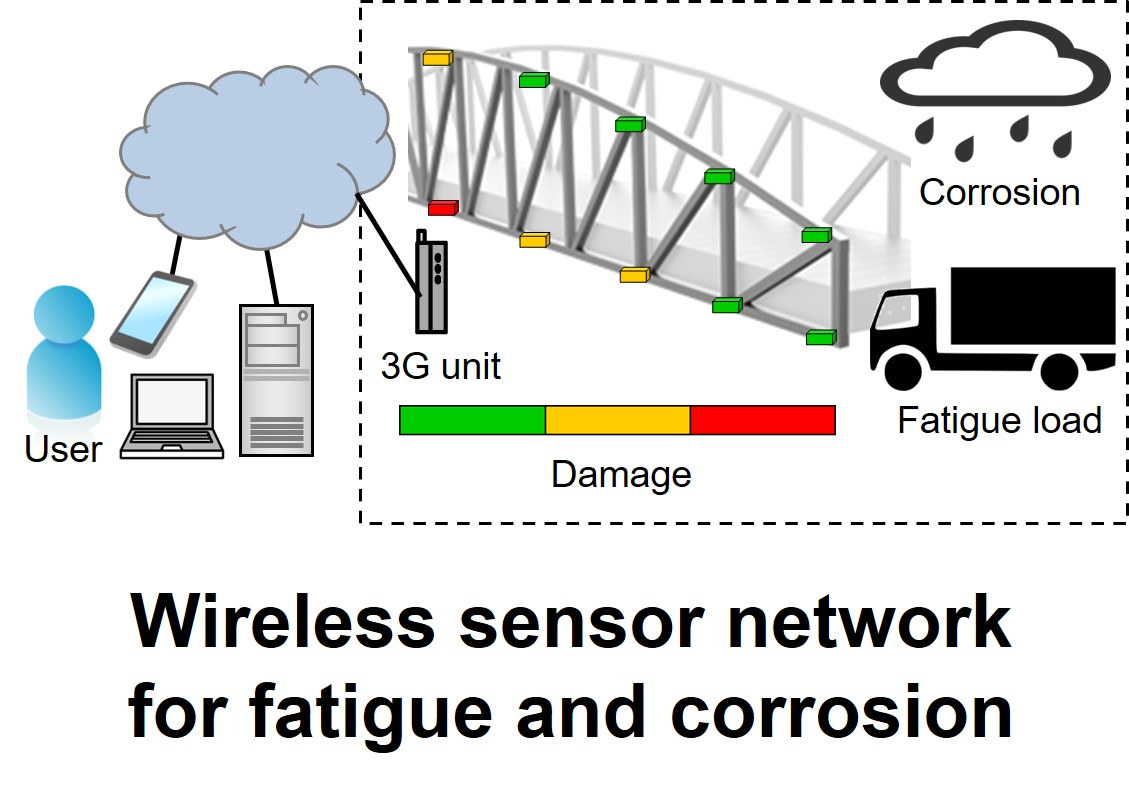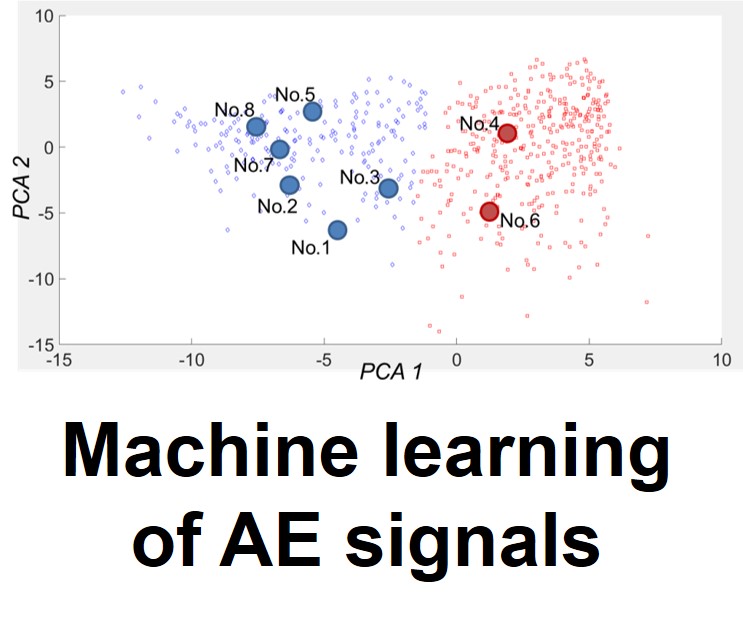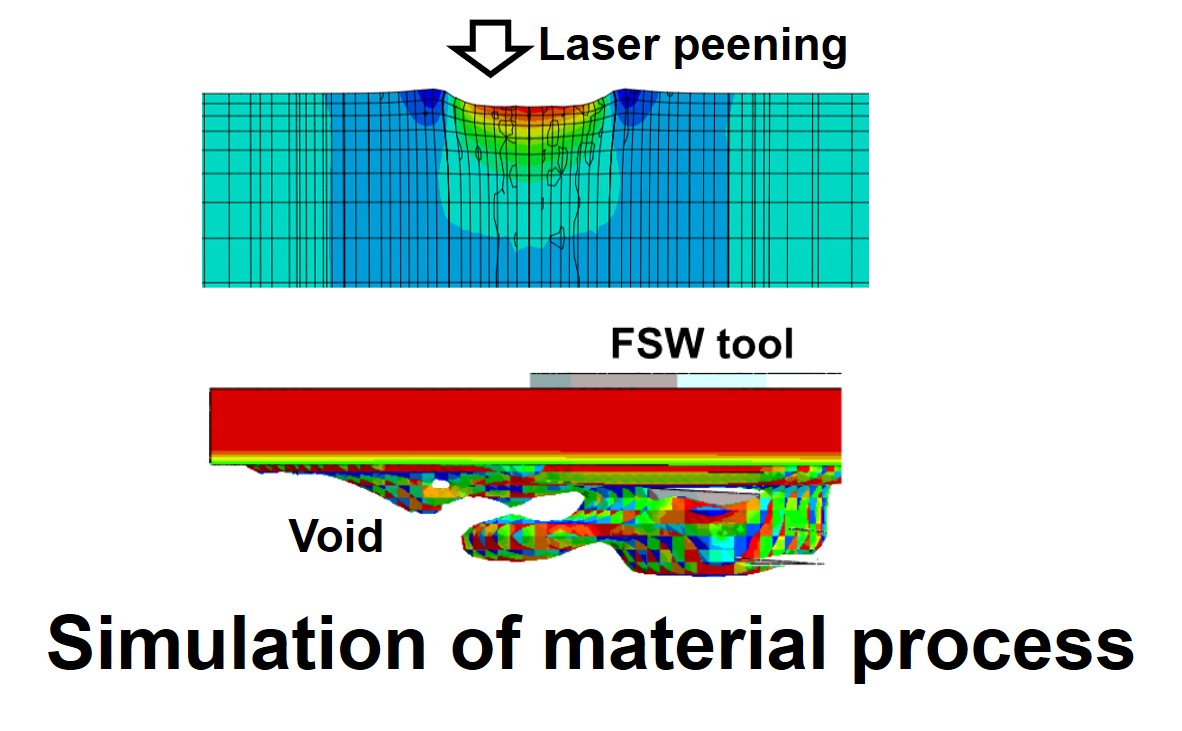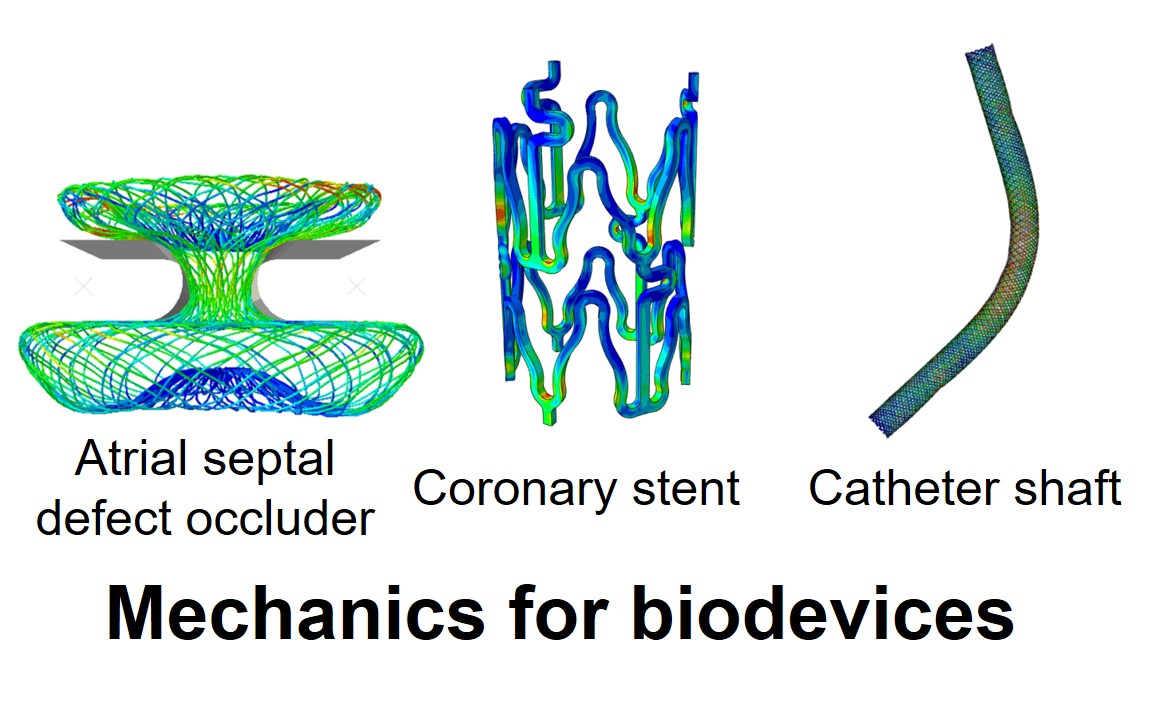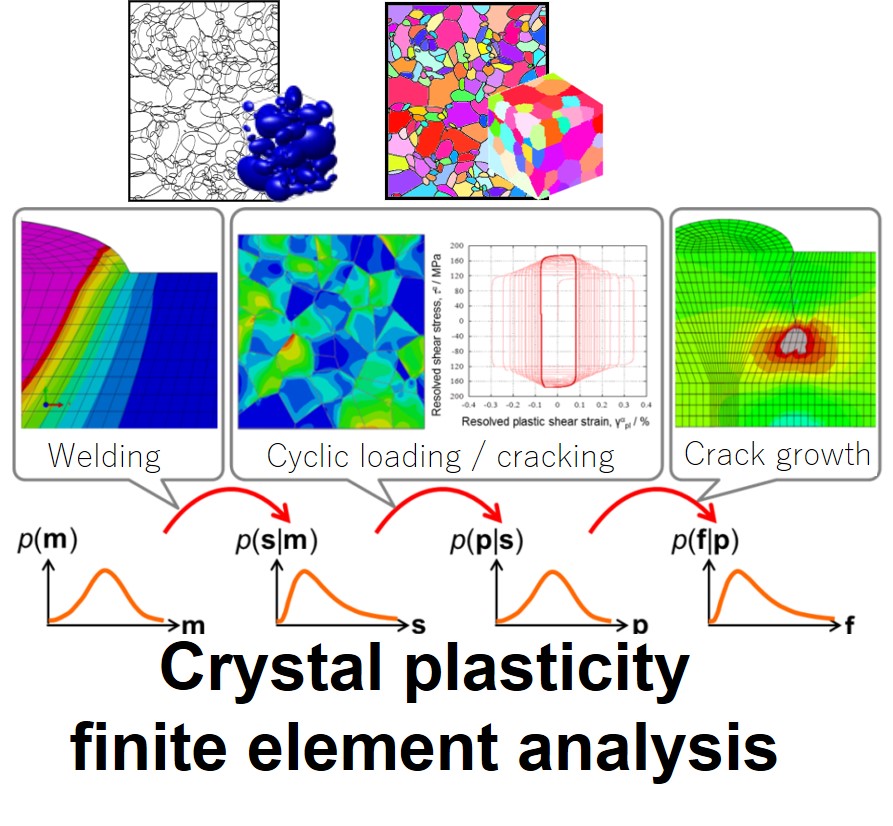When materials are subjected to external forces and environmental loads,
microscale deformations and microcracks are initiated within their microstructures, eventually leading to macroscopic failure.
The reliability of materials is of growing importance across diverse fields, from tackling societal challenges like carbon neutrality and resource circulation to applications in advanced devices and the medical field.
Our research framework combines experimental observation, utilizing fracture mechanics and non-destructive evaluation, with numerical simulations that faithfully reproduce these phenomena.
Furthermore, by applying data-driven science to the vast correlational data on "structure-microfracture-property" relationships generated by these simulations, we aim to acquire the insights needed to guide effective material design for optimizing macroscopic material properties.
By fusing experiments, simulations, and data science, we seamlessly bridge the process from elucidating microscopic damage mechanisms to predicting macroscopic fracture behavior. Through this integrated approach, we contribute to building a safe and more resilient social infrastructure.
